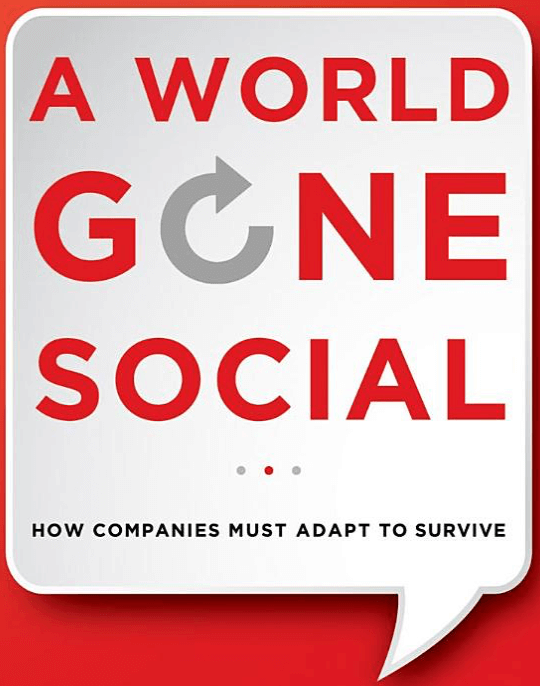 You’ve heard the saying “guilt by association”– where the reputation you’ve earned, right or wrong, is tied to the behavior of a wrong-doer. No, there is no evidence of your wrong-doing. But you are considered guilty simply by hanging around them.
You’ve heard the saying “guilt by association”– where the reputation you’ve earned, right or wrong, is tied to the behavior of a wrong-doer. No, there is no evidence of your wrong-doing. But you are considered guilty simply by hanging around them.
In the Social Age, guilty by association has never been more common. We are judged – by parents, peers, professors and employers – by the company we keep online.
I recently stumbled across the online presence of a college student. She had been tweeting about her experience at a leadership conference where I was speaking. She talked about the city, hanging with her friends, and her opinion of the workshops she had attended so far. Every tweet was above board, if a little edgy.
When I looked further into her social media accounts, however, I found she wasn’t just edgy. This was a person most corporate recruiters just wouldn’t hire. She had images of Jack Daniel’s bottles, memes of cocaine use, pics of rowdy parties– all in full view of everyone. She was apparently quite proud of her reputation as a partier.
Guilt by Association: Social Media Style
Unfortunately, the pics weren’t just of her. They were of her friends. And acquaintances. And fellow fraternity members. She was guilty of not just attempting career suicide; she was setting everyone else in these pictures up for failure – through guilt by association.
When her online presence was brought to her attention, instead of doing her own version of spring cleaning and improving her personal brand, she chose to turn on all privacy settings. Essentially, she refused to change her online personal brand – and subsequently her reputation. She simply built a castle and moat around how she wanted to be perceived.
Success by Association: Is It Possible?
So I thought: if we can be found guilty by association, can we find success the same way? By hanging out with the “cool kids” on social media, can we raise our own stock value?
This isn’t a new thought, of course. From middle school on (a long, long time ago), my parents tried (mostly in vain) to get me to hang out with the better athletes and students in school. It was like a parental merit badge to them. I resisted, and a 6-year tug of war ensued.
Fast forward a couple more years: I was talking to one of those friends my parents didn’t approve of at the time (in hindsight, for good reason). But now, as a senior in college, he seemed to have it all figured out.
He told me one single thing had a huge impact on his life: he upgraded his friends.
He intentionally connected with a group of super smart, ambitious people he hadn’t known previously. Every day they went to the library after intramural sports. He took the habit as his own. His grades skyrocketed. And he made the Dean’s List for the rest of his college career. He was heavily recruited out of college and had his choice of job offers with prestigious companies.
To him, the lesson was clear: success by association was more than possible.
“You are the average of the five people you spend the most time with.”
– Jim Rohn
Are You Currently Associated with Success?
Fast forward 30 years. Here we are in a world gone social, where our entire lives are played out online through tweets, posts, pics and updates. And if we aren’t on the social bandwagon — if we lock down our privacy settings like our stubborn partier – employers don’t think, “Oh, I respect his desire for privacy.”
Instead, they think: “What is he trying to hide?”
So are you hanging out with the wrong people? The people far too willing to share a negative or embarrassing pic of you? Or maybe you’re hiding in your virtual, not allowing anyone but your most trusted friends past the moat?
Or do you deliberately surround yourself with smart, focused professionals, mentors and influencers? Who do you follow on social media? Who follows you? Who do you talk with in Blab and in Twitter chats? Who tags you on Facebook posts?
Most important: How many connections have become mutually-beneficial personal relationships, partnerships and mentorships? How many have led to iron-clad referrals, where they were willing to risk their personal reputation by recommending you for a job, freelance gig or contract?
Who, among those you digitally socialize with make you smarter and more creative? What colleagues make you think twice about your current position on issues? What mentors makes you a better listener and leader? Who makes you a better person and professional?
“Whatever you do in life, surround yourself with smart people who’ll argue with you.”
– John Wooden
Transforming Your Digital Life
Throughout life, we make many life-changing transitions. From high schooler to college student. From collegiate to career. From a respected professional to a leader, or perhaps an entrepreneur.
And with each one of these transitions, an expectation – a social expectation – is now placed upon you.
Ever see Richard Branson puking over a guardrail propped up by his frat brothers? Can you imagine Arianna Huffington with cocaine memes littered throughout her Pinterest account? Probably not.
Not because they don’t have fun. And certainly not because they don’t want people to see the “real” them; they have perhaps the best reputations on the planet for exhibiting authentic personal brands.
But because they, as charter members and early adopters of the Social Age, frankly, know better. They know every move they make is being judged; they understand that every pic and post matters. They realize the behavior of the people they hang out with reflects directly on them – and that social guilt by association is very real.
And they know success by association is more than possible.
Make a Social Transition toward Success
“Never be the best musician in the band… you’ll never learn anything.”
– Pat Metheny
Start working out. Join Toastmasters. Give back by volunteering. Learn something new and relevant. Share your latest blog post, or the latest by someone you admire. Start hanging out, digitally at first and eventually face-to-face, with A-level players. And provide abundant social proof of your hard work by posting you in positive action on social media accounts. Soon, that be your social reputation… not that pic by your friend, the careless party animal.
And then see if maybe you don’t become known as a more successful, hireable professional – all through success by association.



